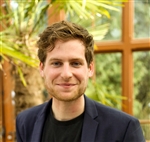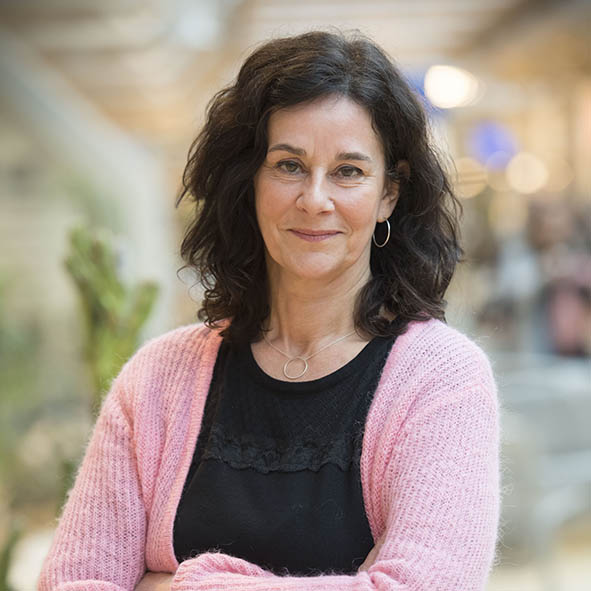Support during your PhD
Every PhD experience is unique, yet you are not in this alone. Doing PhD research can, at times, be demanding and your mental health is of the utmost importance to us. Instances of success may alternate with a sense of failure. Being part of a community, in your research group and as a member of a PhD programme, helps alleviate this burden by sharing daily struggles with your fellow PhD candidates. If issues are more persistent or more structural, it is best to tackle them as soon as they arise. Waiting will only let them grow and make it more difficult to address. Early intervention may prevent escalation of the situation. Hence, if you think you need help, or would just like to talk to someone, we strongly encourage you to reach out.
At Utrecht University, we have multiple layers of support and supervision, depending on what you need. Below, you can see the types of support that are available to you when you encounter a problem. We described the types of problems for which you can consult these different layers of support. For support arranged by the institutes (e.g. confidential advisor), we added links to the relevant websites.
If you are unsure or do not see the type of support you are looking for, please contact your supervisory team or the confidential PhD advisor (see below for more information). We are here for you.
Your first line of referral is of course your supervisory team, which includes a minimum of 2 (co)promotors with whom you should interact on a regular basis (as a rule of thumb, co-promotor once a week and promotor once a month). See Supervisory team for more information on the formation of your supervisory team and their responsibilities. Also check out the website for PhD Supervisors. It will give you insight into our vision on good supervision of PhD candidates of the GSLS.
Your supervisors are here for you and guide you on your journey through your PhD. Issues to discuss include your PhD project, work load, supervision, personal issues affecting performance, etc. These issues can also have a mixed character. Sometimes you may not find it easy to raise an issue with your supervisor, for example, if the issue involves the supervision itself. Taking a training in addressing difficult issues and giving and receiving feedback may help you start the conversation (see below for training). You may also wish to consult an independent person before you talk to your (co-)supervisor. Therefore, it is important that you make sure one – or preferably two – independent advisors are assigned to you at the start of your PhD journey.
The mentors are here during your PhD journey to monitor your progress and collaboration with your supervisors. You will meet with them at least once a year to discuss your annual PhD progress report. Your mentors can also act as confidential support or a sparring partner, if you would like to talk to someone outside of your supervisory team, for example, in cases of disagreement with one of your supervisors. They may act as a mediator, if necessary. We strongly advise that you reach out to them if you encounter a problem that you and your supervisor cannot resolve together. You can talk to your mentor freely and confidentially in an informal way. Take advantage of their expertise in academia and have a chat over a cup of coffee or tea.
If no mentor was assigned at the start of your PhD journey, you can always add them at a later stage. Your supervisor, PhD programme coordinator or another staff member can help you identify a suitable person for this role. Seethe page Mentors for more information about the role of the mentors.
The coordinator and director of your PhD programme can assist you during your PhD journey and are here to help you find resources and answers related to your PhD journey. This includes support related to your training plan (e.g., advice about courses) and problems that may arise with your supervisors. If, for any reason, you are unwilling or unable to consult with your independent advisor, you can also seek advice from your PhD programme coordinator or director, who generally have a good overview of your research environment and know the people involved. For more confidential, private matters, you can consult the confidential PhD advisor.
You can find more information about the PhD programmes here, including thee contact details of the coordinators and directors.
You may find yourself in situations that you cannot or do not want to discuss with the persons involved in your PhD project (see people mentioned above). For all employees of an institution, it is therefore possible to consult their institution’s confidential advisor (vertrouwenspersoon). Each faculty (Science, Veterinary Medicine, Medicine/UMC Utrecht) has dedicated confidential advisors for PhD candidates.
You can consult the confidential PhD advisor for issues or situations that may be related to inappropriate behaviour, the complex work relationship between PhD candidates and their supervisors influenced by dependency, not receiving feedback in time, false expectations, work atmosphere, (sexual) harassment, discrimination, bullying, aggression and violence. At Utrecht University you can also contact the confidential PhD advisor for problems that affect more people than yourself, such as abuse of power, fraud or data manipulation.
At UMC Utrecht, the confidential PhD advisor is part of the Office Ombuds and Confidential Affairs (Bureau Ombuds- en Vertrouwenszaken). There, the confidential PhD advisor can be consulted if you encounter inappropriate behaviour. For matters regarding working conditions and employment law you can consult the ombuds. The UMC Utrecht Office Ombuds and Confidential Affairs can refer you to the right person based on your question.
A confidential advisor will never disclose information without your consent. The advisor will inform, advise and refer you if necessary. At your request, the advisor can arrange mediation of personal or professional disputes between you and your supervisor(s) or other colleagues. Consulting a confidential advisor will not be recorded in your personnel file.
Institutions other than the 3 Life Sciences faculties may not have a dedicated confidential PhD advisor. If this is the case, you may seek advice from that institution’s (general) confidential advisor. Alternatively, you may wish to contact the confidential PhD advisor of the faculty of your first promotor.
Sometimes it is difficult to know who the right person is to help you out. If you do not know whom to turn to, the confidential PhD advisor is the right person to start with. They will help point you in the right direction based on the character of your complaint. They are, in other words, the pivot in your support network.
Faculty of Science and Faculty of Veterinary Medicine
 Freek Appels, PhD
Freek Appels, PhD
Confidential advisor for PhD candidates, Faculty of Science and Faculty of Veterinary Medicine
UMC Utrecht
 Michèle Huisman
Michèle Huisman
Confidential advisor for PhD candidates, Ombuds- en Vertrouwenszaken UMC Utrecht
Hubrecht Institute
 Stieneke van den Brink
Stieneke van den Brink
Confidential advisor Hubrecht Institute
 Prof. Rik Korswagen
Prof. Rik Korswagen
Confidential advisor Hubrecht Institute
Marja Vos
External confidential advisor Hubrecht Institute.
Marja is not part of the (scientific) staff of the Hubrecht and is completely independent from the institute. You can contact her if you do not feel comfortable discussing you situation with one of the two other Hubrecht confidential advisors.
Utrecht University has a confidential advisor dedicated to inappropriate behaviour. If you are confronted with inappropriate behaviour, you can consult this confidential advisor. Inappropriate behaviour includes, but is not limited to, (sexual) harassment, discrimination, aggression, violence and bullying.
If you are confronted with inappropriate behaviour at UMC Utrecht, the confidential PhD advisor is the right person to consult (see above).
Questions or complaints about research integrity can be discussed confidentially with the confidential advisor research integrity of Utrecht University. This includes suspicion or observation of an injustice (violation of integrity), and scientific misconduct.
At UMC Utrecht, the ombuds (login required) has the role of confidential advisor concerning research integrity.
If you are unable to resolve problems on your own and if they affect you to such an extent that your work and/or health suffers, you can contact the staff welfare service (bedrijfsmaatschappelijk werk). Together with the staff welfare officer, you can start to identify and clarify your problems. You will then discuss a way to manage your issues so you that you can solve them. Increasing your resilience and problem-solving skills is central here. For further support, you may be referred to a confidential advisor.
- Bedrijfsmaatschappelijk werk UMC Utrecht (intranet, login required)
- Staff welfare service UU (intranet, login required)
Utrecht University has a dedicated psychologist who specialises in issues relevant for PhD candidates. The PhD psychologist has expertise in short-term treatment of anxiety issues, mood complaints, concentration and motivation problems, fear of failure and more. In addition to counselling, the psychologist organises a prevention programme consisting of workshops to teach PhD candidates about different topics related to mental well-being. Visit the PhD Course Centre website (Chapter 5.1) for more information about the workshops.
In cases of acute mental stress, it is best to consult the PhD psychologist and/or your general practitioner. They provide the first line of healthcare and are able to refer you to more specialised help if necessary.
In addition to the above, human resources departments of several institutes offer trainings to develop skills related to personal development. They find it important that you enjoy your work and continue to develop. For example, Utrecht University offers training through the Development Guide (login required) and the UMC Utrecht through ULearn. Check out the trainings offered by your institute and discover the next steps in your professional development.

